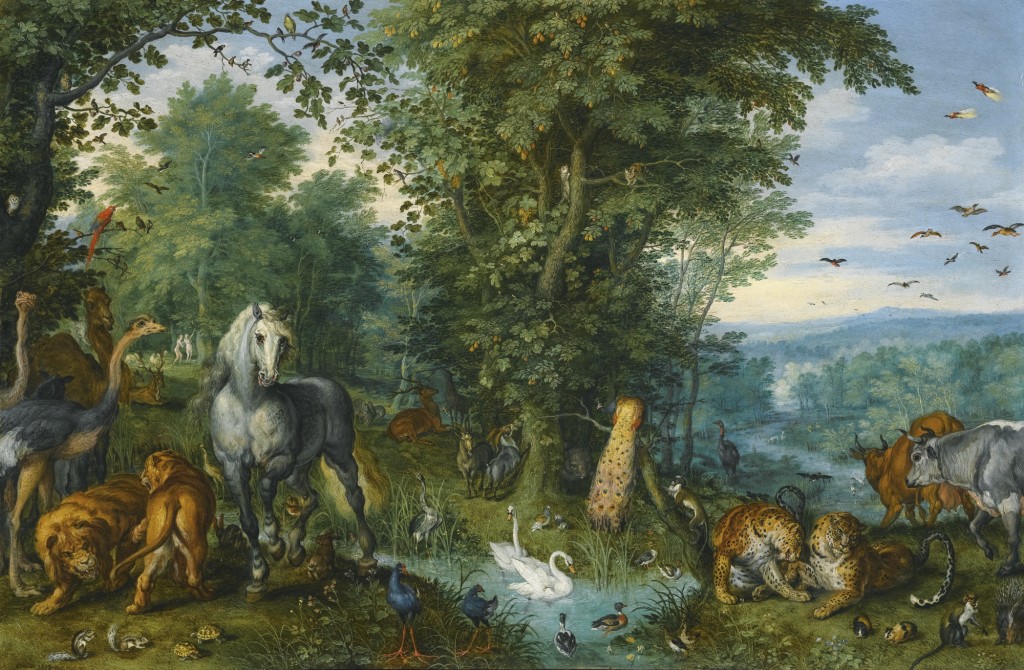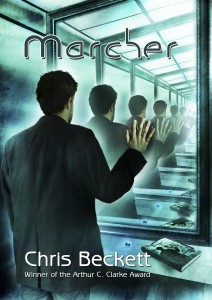I enjoyed this article by David Brin. It seems to me to exemplify the way the science fictional imagination works, connecting together, in a single speculative sweep, ideas that come from astronomy, mathematics, biology, history, politics and economics.
Beginning with the Fermi Paradox (that is: if we are not alone in the universe, how come we aren’t detecting any aliens?), Brin moves on to consider the question as to whether we should actively seek to identify ourselves to putative alien civilizations. He’s cautious about this, and considers there to be a real possibilility of alien species having very different priorities to ours: “would our favorite models of ‘human nature’ … apply equally to a sapient race descended – say – from pack carnivores, like wolves? Or solitary hunters, like tigers? Or solipsistic omnivores (bears), or herd herbivores? Or ants?”*
Brin then discusses the way that even human societies (societies developed by “gregarious apes”) have a strong tendency to form pyramid-like hierarchies. Our present western society he sees as an exception to this:
Across the last two centuries we have experimented with a different attractor model – one that is diamond-shaped, with an empowered middle that both outnumbers the poor and is unafraid of the rich. In the Enlightenment Experiment, arenas like markets, democracy, science, courts, and sports successfully harness regulated competitiveness to create tsunamis of wealth and free exploration, while also allowing and encouraging countless opportunities for willing cooperation. The resulting society roils and froths. It may seem chaotic, especially for those who dream of simple, perfect utopias. But inarguably it has outperformed – in just two centuries – all of the preceding feudal pyramids… combined.
He thinks that this diamond shape is constantly under threat from forces seeking to pull society back to the old, stagnant, feudal pyramid, and takes a swipe here at those who think of free markets as somehow ‘natural’ states that thrive without external intervention:
Anyone who claims that competitive arenas can remain effective without carefully negotiated regulation to suppress cheating should try this experiment: set up a sports league without rules, in which the strongest players are free to unite in a single team, if they so choose. (To make the experiment perfect, establish it without even laws against violence and murder: think Rollerball.) …
When the strong can side with the strong against the less-strong, you quickly get cartels and monopolies, then inherited ruling castes, and the old cycle is re-established. It is being attempted as we speak.
It is indeed. People like myself, whose political instincts are on the ‘leftward’ side of the political spectrum (insofar as that is even a meaningful concept: but that’s for another time!), are prone to conflate the idea of ‘free markets’ with the idea of ‘capitalism’, but in fact the idea of a free market is a false front behind which monopoly capitalism hides, much in same way as the idea of people’s power is the false front behind which communist tyrannies hide. By calling on the idea of ‘free markets’ capitalism resists the very regulation that is necessary for genuine pluralism in the market place, and, if still unchecked, it becomes first monopolistic, and finally a new kind of feudalism.
Brin wonders if the pyramidal structure is an ‘attractor state’ so powerful that it provides a possible explanation for the Fermi Paradox. If stagnant, rigidly hierarchical pyramids are the default structure towards which societies of sentient beings are inevitably drawn, then perhaps this explains why there aren’t societies out there which are dynamic and technologically advanced enough to be detected?
At this point, though, I find his argument a bit of a stretch. We need to bear in mind, I think, that those ‘tsunamis of wealth and free exploration’ have been acheived, not simply by a certain kind of social structure, but through an unprecedented level of exploitation of the resources of the planet**. I’d suggest that a much more plausible explanation of the Fermi Paradox can be found in what we now know about climate change. Perhaps to achieve a sufficient level of technological sophistication to be detectable across space, a society has to draw so massively on its planet’s reserves of stored up chemical energy, that a civilization-destroying ecological catastrophe becomes inevitable?
Obviously I hope I’m wrong, and that societies of sentient beings can find other ways of progressing that don’t involve self-destruction. Or at least that we can, even if none of the others out there have yet managed it.

